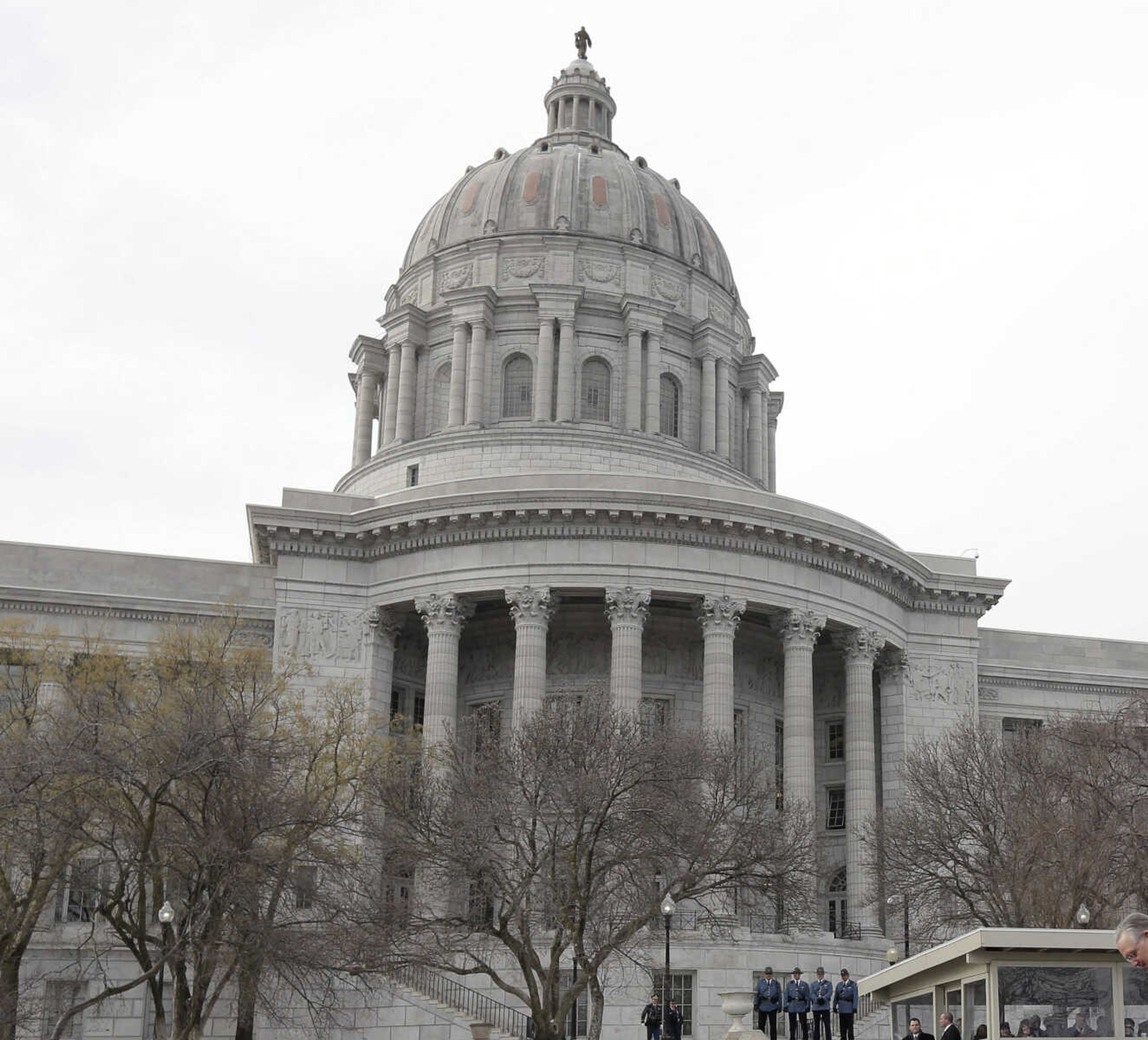Clean Missouri ballot measure looks to change way legislative districts are drawn
A proposed constitutional amendment on Missouri's November ballot would change the way state legislative districts are drawn, limit campaign contributions and treat state lawmakers' emails as public records. The so-called Clean Missouri ballot initiative has drawn bipartisan support, but many GOP lawmakers including area state representatives strongly oppose it. Some GOP lawmakers have suggested it is a way to gerrymander districts to elect more Democrats to the state Legislature...
A proposed constitutional amendment on Missouri's November ballot would change the way state legislative districts are drawn, limit campaign contributions and treat state lawmakers' emails as public records.
The so-called Clean Missouri ballot initiative has drawn bipartisan support, but many GOP lawmakers including area state representatives strongly oppose it. Some GOP lawmakers have suggested it is a way to gerrymander districts to elect more Democrats to the state Legislature.
The Missouri Chamber of Commerce and Industry states on its website the goal of the measure is to "upend Missouri's political system."
State Rep. Donna Lichtenegger, R-Jackson, called the measure "a disaster."
She and other area Republican legislators said the measure would put too much power in the hands of the state auditor in choosing a demographer to draw up district boundaries.
Proponents, however, said legislative leaders in the Senate would be involved in helping to choose the demographer.
The state chamber has criticized the Clean Missouri campaign as an effort by billionaire activist George Soros "to tinker with Missouri's constitution and redraw the lines that define how Missouri is divided into state House and Senate districts."
The chamber has filed a lawsuit in an effort to have the measure removed from the Nov. 6 ballot on the grounds the measure "bundles together several different issues" in violation of the Missouri Constitution.
Proponents, however, said the measure is constitutional.
State Rep. Kathy Swan, R-Cape Girardeau, said the Clean Missouri initiative "is far from living up to its name."
Swan said the state already has a "transparent, bipartisan process." Two citizen committees with equal representation by Republicans and Democrats seek to draw up district boundaries after each Census.
Swan, who was not in the Legislature at the time, served on the committee to redraw Senate districts in 2011. The members couldn't come to a complete agreement, requiring a court to draw the boundaries, she said.
She argued the ballot measure could make redistricting "more political" by concentrating the power in the hands of the auditor.
Proponents said Amendment 1 would:
- Ban lobbyist gifts to lawmakers of more than $5.
- Require politicians to wait two years before becoming lobbyists.
- Lower campaign contribution limits for state legislative candidates.
- Require legislative records be open to the public.
- Prohibit political fundraising by legislative candidates or lawmakers on state property.
- Provide for a "nonpartisan expert" to draw legislative district maps that would then be reviewed by a citizens' commission.
Lichtenegger, the Jackson lawmaker, said she doesn't believe her emails or those of other lawmakers should be open to the public. "That is really none of their business," she said.
But Clean Missouri proponents, who held a news conference Wednesday in Cape Girardeau, said lawmakers' emails should be open to public scrutiny.
Paul DeGregorio, a veteran of Republican politics and former chairman of the U.S. Election Assistance Commission under President George W. Bush, said other elected officials are covered by the state's open records law. State lawmakers should too, he said.
Without access to lawmakers' emails, no one knows if they are "cutting deals," he said.
DeGregorio said, "In recent years, too many Missouri politicians have fallen prey to the seductions of money and power, and, as a result, Missourians have experienced serious political corruption."
He said, "Campaign promises are often ignored in favor of special interests, huge checks and political power. It really doesn't have to be this way."
DeGregorio told reporters during the news conference in the 300 block of Broadway "we have a chance this November to start cleaning up Missouri politics."
He said passage of the ballot measure would bring more transparency to state government and create competitive elections.
Too often legislative districts have been drawn to protect politicians of both parties, he said.
"Too often, we see Democrats with no opponents; we see Republicans with no opponents," DeGregorio said.
The measure, he said, would create a fairer way to draw up the boundaries of legislative districts.
The League of Women Voters of Missouri backs the Clean Missouri initiative.
Shannon McNew of the League of Women Voters of Southeast Missouri said since 2004, state lawmakers have taken more than $12 million in lobbyist gifts, involving everything from concerts and dinners to travel.
"This isn't right," she said.
Lawmakers also "continue to ignore our state's open records law," she said, a reference to the fact legislators contend their emails are not public records.
McNew said under the ballot measure neither the Republican Party nor the Democratic Party would have "an unfair advantage" when the new legislative-district maps are drawn after the next Census.
Ron North, president of the local NAACP, welcomed the ballot measure.
"When we rein in lobbyists and get big money out of state politics, we force candidates to win our votes, debate the issues and represent us," he said.
mbliss@semissourian.com
(573) 388-3641
Connect with the Southeast Missourian Newsroom:
For corrections to this story or other insights for the editor, click here. To submit a letter to the editor, click here. To learn about the Southeast Missourian’s AI Policy, click here.











